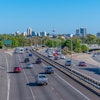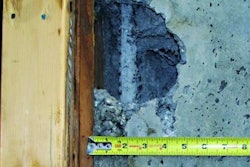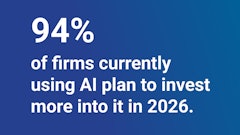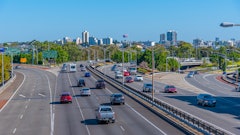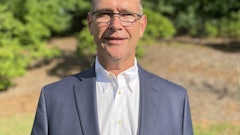TRENTON - Gov. Christie unveiled a plan Thursday to finance state transportation projects for five years, relying on additional borrowing and on funds diverted from the canceled construction of a commuter rail tunnel into Manhattan.
Christie said his proposal for the Transportation Trust Fund was more responsible than those of previous administrations because it would lean progressively less on borrowing and more on "pay-as-you-go" cash contributions. But legislative Democrats criticized it for continuing to rely on loans and toll increases.
Under the plan, $1.6 billion a year would be spent on roads, bridges, and mass transit, the same as now.
The transportation fund is about to run out of cash for new projects because almost all of the incoming revenue must be spent to pay for previous borrowing.
Christie said his strategy for replenishing the fund "meets our infrastructure needs and responsibly manages the debt incurred by taxpayers."
The plan involves borrowing $4.4 billion over five years, using about $1.8 billion from the general fund and higher turnpike tolls (an increase has been approved for next year), and $1.8 billion from money set aside for the so-called ARC tunnel under the Hudson River. Christie pulled out of the construction project in October, citing potential cost overruns.
The money will be spent on state roads and bridges ($728 million a year), NJ Transit ($672 million), and local roads ($200 million)
The transportation fund's debt is projected to rise to $15.9 billion by July 2016, up from $13.3 billion in July of this year.
The chairman of the Assembly's transportation committee, John Wisniewski (D., Middlesex), said Christie's proposal "kicks the can down the road for five more years."
Because the Port Authority is a bistate agency, gaining access to the former ARC funds "relies on the cooperation of New York's governor," said Wisniewski, who supported the scrapped mass-transit tunnel.
"All this from the man who, just over a year ago, called borrowing money to keep the TTF solvent 'unconscionable.' "
Sen. Frank Lautenberg (D., N.J.), who helped secure $3 billion in federal money for the tunnel, said Thursday that Christie's plan was evidence that the governor had killed the project to raid its funds "as part of a fix for his political problems."
Christie has said that his decision on the tunnel was unrelated to problems with the transportation fund.
Assemblyman Scott Rudder (R., Burlington), another member of the transportation committee, praised Christie for a "well-funded and fiscally responsible plan" that would not raise taxes.
Peter Kasabach, executive director of New Jersey Future, a pro-transit advocacy group, said the plan heads "in the right direction," and he lauded its increase in funding for NJ Transit.
"It addresses the immediate need to replenish the Trust Fund, moves away from excessive reliance on debt, and back toward the 'pay-as-you-go' model on which the fund was founded."
But it is "not a sustainable solution," Kasabach said. "It will leave New Jersey taxpayers burdened with a higher level of debt than they face today. It also relies on sources of funding that may or may not be forthcoming." The Port Authority may be unwilling to finance New Jersey projects at the level Christie desires, he said.
New Jersey Future, the Sierra Club, and other groups had urged raising state gas taxes as part of the funding solution, but Christie had said he would not consider a gas-tax hike.
The head of a state gasoline-dealers group praised Christie for not pushing for a gas-tax increase.
"With Garden State residents already paying excessive taxes and fees, we applaud the governor for reaffirming this promise today and saving state commuters an additional financial hardship," said Sal Risalvato, executive director of the New Jersey Gasoline, Convenience, and Automotive Association.


